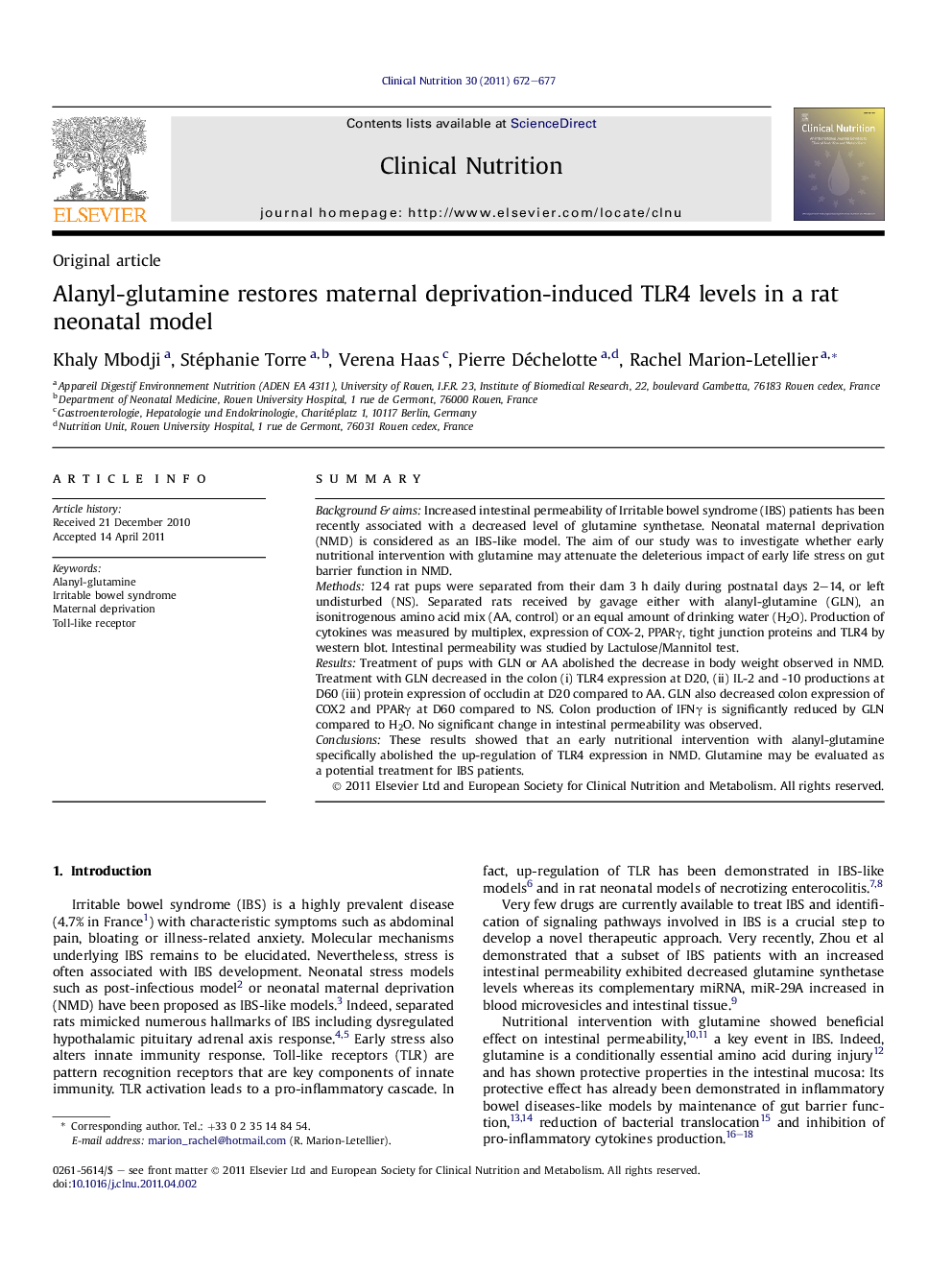| Article ID | Journal | Published Year | Pages | File Type |
|---|---|---|---|---|
| 5871608 | Clinical Nutrition | 2011 | 6 Pages |
SummaryBackground & aimsIncreased intestinal permeability of Irritable bowel syndrome (IBS) patients has been recently associated with a decreased level of glutamine synthetase. Neonatal maternal deprivation (NMD) is considered as an IBS-like model. The aim of our study was to investigate whether early nutritional intervention with glutamine may attenuate the deleterious impact of early life stress on gut barrier function in NMD.Methods124 rat pups were separated from their dam 3 h daily during postnatal days 2-14, or left undisturbed (NS). Separated rats received by gavage either with alanyl-glutamine (GLN), an isonitrogenous amino acid mix (AA, control) or an equal amount of drinking water (H2O). Production of cytokines was measured by multiplex, expression of COX-2, PPARγ, tight junction proteins and TLR4 by western blot. Intestinal permeability was studied by Lactulose/Mannitol test.ResultsTreatment of pups with GLN or AA abolished the decrease in body weight observed in NMD. Treatment with GLN decreased in the colon (i) TLR4 expression at D20, (ii) IL-2 and -10 productions at D60 (iii) protein expression of occludin at D20 compared to AA. GLN also decreased colon expression of COX2 and PPARγ at D60 compared to NS. Colon production of IFNγ is significantly reduced by GLN compared to H2O. No significant change in intestinal permeability was observed.ConclusionsThese results showed that an early nutritional intervention with alanyl-glutamine specifically abolished the up-regulation of TLR4 expression in NMD. Glutamine may be evaluated as a potential treatment for IBS patients.
